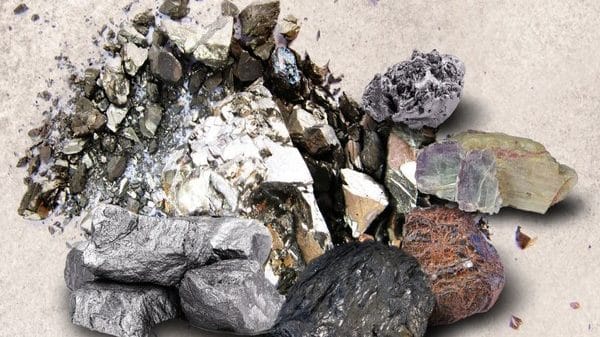New Delhi: At a time when India’s auto and tech sectors are feeling the heat on account of China’s export curbs on critical minerals, Prime Minister Narendra Modi in his Independence Day address Friday stressed on why it is essential for India to be self-reliant in the sector.
Addressing the nation from the Red Fort for the 12th consecutive time, Modi said, “Today, the entire world is highly concerned about critical minerals and has begun to fully understand their importance. For us too, self-reliance in critical minerals is essential. India has launched the National Critical Minerals Mission.”
The country is moving towards self-reliance in critical minerals and exploration is underway at more than 1,200 locations, he added.
From mobile phones to electric vehicles, solar panels, semiconductors and wind turbines, modern technology is heavily dependent on critical minerals such as lithium, graphite, cobalt, thallium and rare earth elements (REE). India is currently dependent on China and other countries to meet its requirement of critical minerals including lithium, cobalt and REE.
It is in this context that the PM’s thrust to become self-reliant in the critical minerals sector becomes important.
Over the last two years, India has taken several significant steps in the critical mineral sector. The Union cabinet had in January this year approved the launch of the National Critical Mineral Mission with an expenditure of Rs 16,300 crore and expected investment of Rs 18,000 crore by PSUs, etc.
The mission will intensify the exploration of critical minerals within the country and in its offshore areas. It aims to create a fast-track regulatory approval process for critical mineral mining projects. Additionally, the mission will offer financial incentives for critical mineral exploration and promote the recovery of these minerals from overburden and tailings.
The mission aims to encourage Indian PSUs and private sector companies to acquire critical mineral assets abroad and enhance trade with resource-rich countries. It also proposes development of a stockpile of critical minerals within the country.
In the 2024 Budget, Finance Minister Nirmala Sitharaman had also announced exemption of 25 critical minerals including lithium and rare earths from customs duty and also launched auction of the first tranche of offshore blocks for mining.
In August 2023, Parliament cleared amendments to the Mines and Minerals (Development and Regulation) Act, 1957, paving the way for commercial mining of six critical minerals—lithium, beryllium, niobium, tantalum, titanium and zirconium—and deep-seated minerals like gold, silver, and copper.
Until then, commercial mining of these critical minerals by private companies was prohibited. Only government agencies were allowed in exploration and mining operations.
Parliament also cleared amendments to the Offshore Areas Mineral (Development and Regulation) Act, 2002, which seek to allow commercial mining of mineral resources in offshore areas.
In 2023, India released a comprehensive list of 30 critical minerals necessary for economic development and national security.
India also joined the Minerals Security Partnership, a US-led alliance of 14 developed countries in 2023 to “ensure that critical minerals are produced, processed, and recycled in a manner that supports the ability of countries to realize the full economic development benefit of their geological endowments”.
(Edited by Gitanjali Das)
Also Read: Trump says ‘deal is done’, China to remove curbs on exports of critical minerals to US






